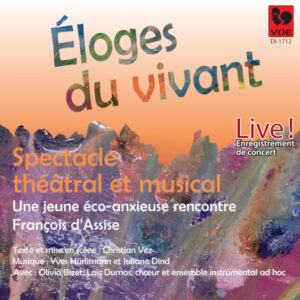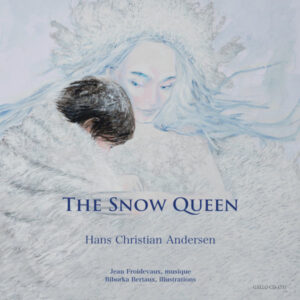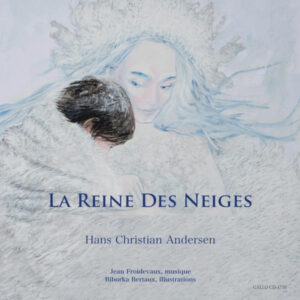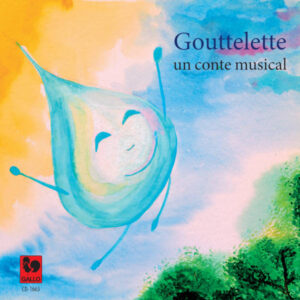Extraits / Excerpts
Norah Zapata Prill: Mare Nostrum - Irma Weissenberg Perenyi
Norah Zapata PRILL: Mare Nostrum
Ernest BLOCH: From Jewish Life, B. 54: III. Jewish Song – Norah Zapata PRILL: N’émerge pas – Nous n’avons jamais été aussi près les uns des autres – Nous allons – Je suis de passage – Après avoir négocié avec le merle – Ernest BLOCH: From Jewish Life, B. 54: II. Supplication – Norah Zapata PRILL: Souviens-toi – Une embarcation de fortune pour mon malheur – Pauvreté aux mille-pattes – Que diront les palmiers dattiers à ta mère? – Tu ne voulus pas quitter ton village – Le vieux – Ernest BLOCH: From Jewish Life, B. 54: I. Prayer – Norah Zapata PRILL: Je marche sur ces plages où la noyade menace – Peut-être ne reviendrais-je plus – Si par hasard je ne reviens pas au printemps – Epilogue. On dit qu’heureux est le voyageur qui à son retour – Piotr Ilyich TCHAIKOVSKY: Romance in F Minor, Op. 5.
Roberto Sawicki, Violin and artistic Direction.
Elisabeth Dönni Kocher, Piano.
Irma Weissenberg Perenyi, Narrator.
The octopus’s embrace will be sweet: TRAGEDY AND TENDERNESS in MARE NOSTRUM
This new collection of poems by Norah Zapata-Prill dances on the tightrope of tenderness, making its author a tightrope walker of verse, always careful not to slip into pietism or morbidity, capable of tiptoeing us into stories of excruciating pain, true tragedies of our time that the Bolivian poetess collects with respect and tells with equal delicacy.
This is no easy task, considering that the theme of this collection of poems speaks unequivocally of our Mediterranean as a graveyard of migrants. We are faced with a balancing act that does not resort to acrobatics, virtuosity or stunts, but rather captures the reader’s attention with diametrically opposed qualities: psychological and emotional depth, and a fundamental, familiar and empathetic poetic language. It is thanks to this that, as we progress through the reading, we make the life stories of the protagonists of the various poems more and more our own. The others – the migrants and the uncertain and dangerous adventure of crossing the Mediterranean – become familiar faces, far removed from the cold statistics or images repeated on the news.
The disturbing yet omnipresent presence causing tragic havoc in Mare Nostrum is undoubtedly that of death. It transforms migrants into an anonymous mass, both compact and undefined, without a story, reducing them to mere bodies (“We have never been so close to each other/Heap together, Strangers, Mute, Undefined wandering in the dark sea”), until, suddenly, the poet reverses the meaning of this lack of definition, suggesting to the deceased migrants that they do not return to the light and do not reveal their identity, if all this were only to fuel the chronicle of a new failure or the simple curiosity about their fate, an interest totally absent when they were alive (“Let them not name you one more among so many/Let the human comedy weave its masks/Let them not name you/Do not tell them who you are.”). “Los Olvidados” (The Forgotten) is the title of a poem not included in this collection but perfectly illustrating the situation of many oppressed by the gears of injustice, as is the case with migrants, to whom the poet dedicates her current work.
Thus, in another highly intense poem, even though it constitutes the last message of a migrant’s life, the protagonist bids farewell with the feeling that a certain relief and solace come precisely from the marine world: “What happier tomb than the azure song of the sirens? / My nights will be hammocks without insomnia / Without the shame of not putting bread on the table / The embrace of octopuses will be gentle.” Finally, the contrast between the depths of the sea, where one touches the abyss marking the end of the migrants’ terrestrial life, and the sky, the opposite pole where they arrive through a transmigration of the soul, from the darkness of the waters to the transparency of the celestial vault. It is no coincidence that birds fly through the pages of this book. “My sorrow will turn into escape,” says another voice in this chorus of migrants constantly suspended between the immeasurable tragedy, memories of horror, sometimes tender as well, and the persistent vision of a not-too-distant redemption.
Lucia Cupertino (trad. ChatGPT)
- Categories
- Composers
- Interprets
- Booklet












